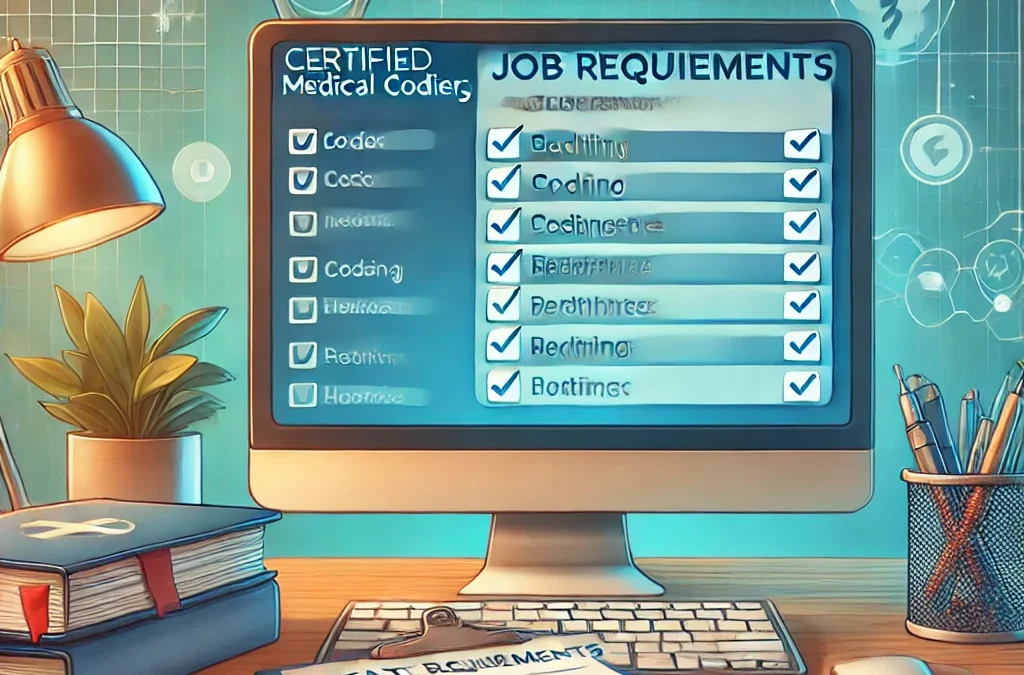Job Requirements for a Certified Medical Coder
Medical coders play a crucial role in the healthcare industry, ensuring that medical records are correctly translated into standardized codes for billing and insurance purposes. But what exactly does it take to become a certified medical coder? Let’s dive into the job requirements and skills you’ll need to succeed.
Introduction to the Role of a Certified Medical Coder
A certified medical coder reviews medical records and assigns appropriate codes for diagnoses and procedures. These codes are essential for billing, insurance claims, and healthcare data analysis.
Essential Skills for Medical Coders
Successful medical coders need a combination of technical and soft skills, such as proficiency in coding languages, attention to detail, and strong communication skills.
Education and Certification Requirements
While some employers accept candidates with a high school diploma, most prefer candidates with certifications and formal training in medical coding.
Recommended Certifications for Medical Coders
CPC Certification
The CPC certification, offered by AAPC, focuses on outpatient coding and is highly sought after by employers.
CCA Certification
The CCA certification from AHIMA is an excellent option for those new to the field and provides foundational knowledge.
CCS Certification
CCS is ideal for experienced coders specializing in inpatient hospital coding.
Technical Knowledge: Understanding ICD, CPT, and HCPCS Codes
Certified coders must have a deep understanding of coding systems like ICD (International Classification of Diseases), CPT (Current Procedural Terminology), and HCPCS (Healthcare Common Procedure Coding System).
Familiarity with HIPAA and Compliance Standards
Medical coders handle sensitive patient information, so they need to be familiar with HIPAA regulations and other compliance standards.
Experience Requirements for Medical Coding Jobs
Some coding jobs require prior experience, while others offer on-the-job training. Internships and entry-level positions are great starting points.
Proficiency in Medical Terminology and Anatomy
A strong grasp of medical terminology and anatomy is essential for accurate coding.
Computer Literacy and Software Expertise
Medical coders often use specialized software, including electronic health record (EHR) systems and billing software. Proficiency in these tools is essential.
Accuracy, Attention to Detail, and Analytical Skills
Coding errors can lead to claim denials or compliance issues, so accuracy is paramount. Analytical skills also help coders interpret complex medical information.
Interpersonal Skills for Effective Communication
Coders need to communicate with healthcare providers, insurance companies, and other professionals. Strong interpersonal skills are a must.
Job Settings for Certified Medical Coders
Medical coders can work in various settings, including hospitals, clinics, insurance companies, and remote positions. The flexibility of this career makes it appealing to many professionals.
Conclusion
Becoming a certified medical coder requires a mix of education, certification, and practical skills. If you are detail-oriented and interested in healthcare, this career could be a perfect fit. Start by choosing the right certification, gain experience, and watch your career grow.
FAQs
What certifications are required to become a medical coder?
While not mandatory, certifications like CPC, CCA, or CCS are highly recommended.
Can I become a medical coder without prior experience?
Yes, many employers offer entry-level roles or internships to new coders.
What software do medical coders need to know?
Coding software, EHR systems, and billing software are essential tools for medical coders.
Is remote work available for certified medical coders?
Yes, many medical coders work remotely, especially with the rise of telehealth services.
How long does it take to become a certified medical coder?
It can take 6 to 12 months, depending on the certification program and your pace of study.


Recent Comments